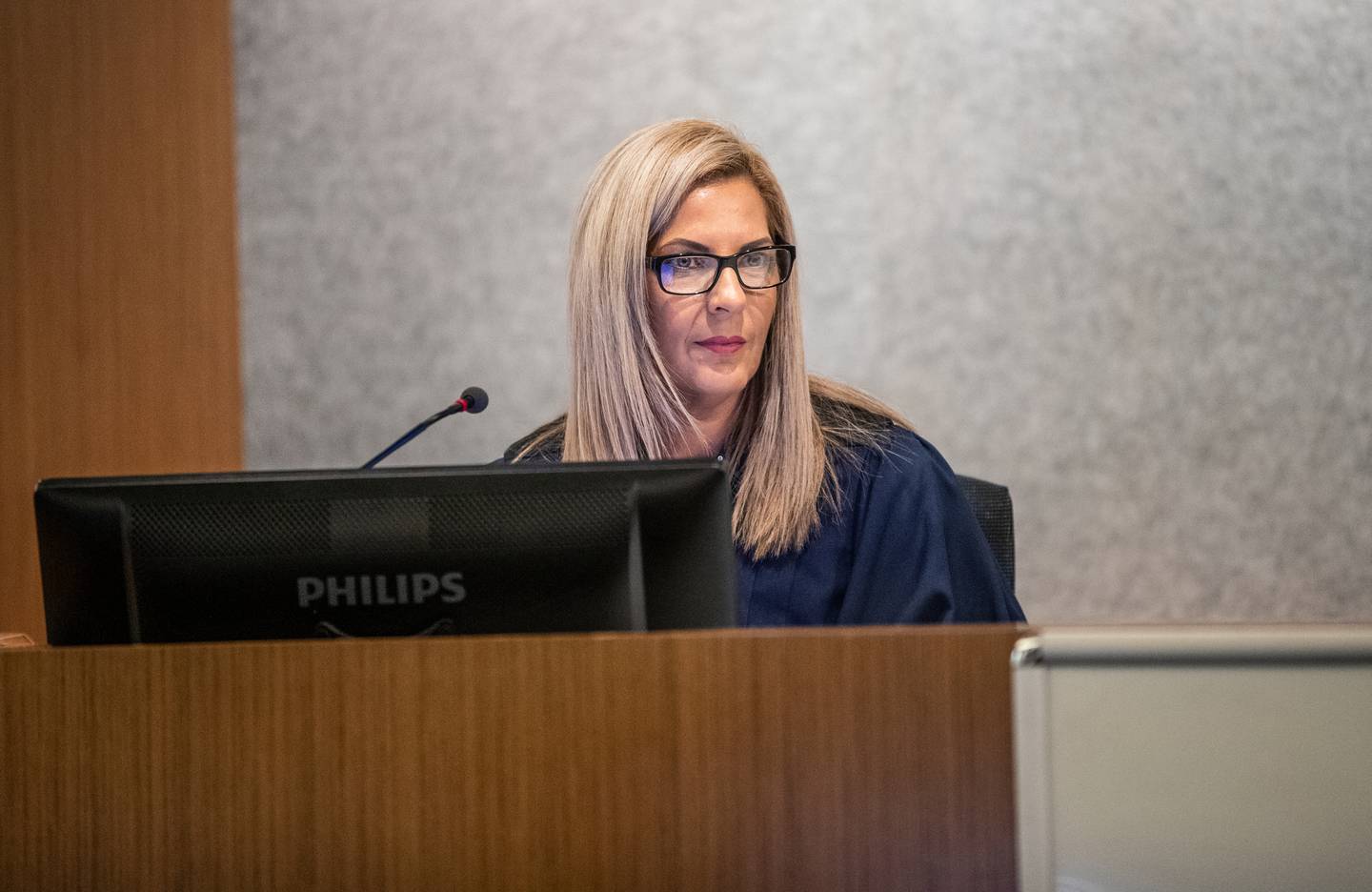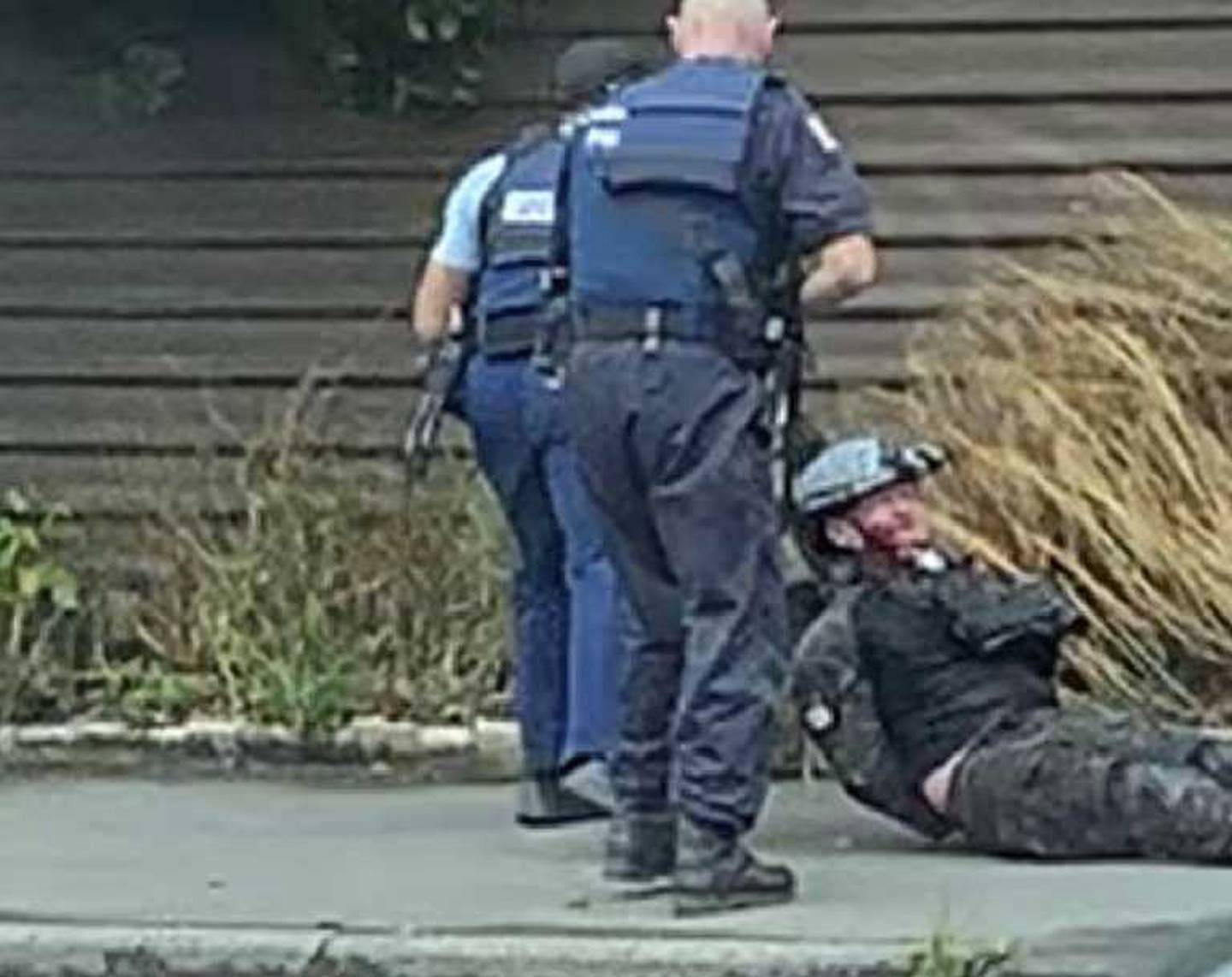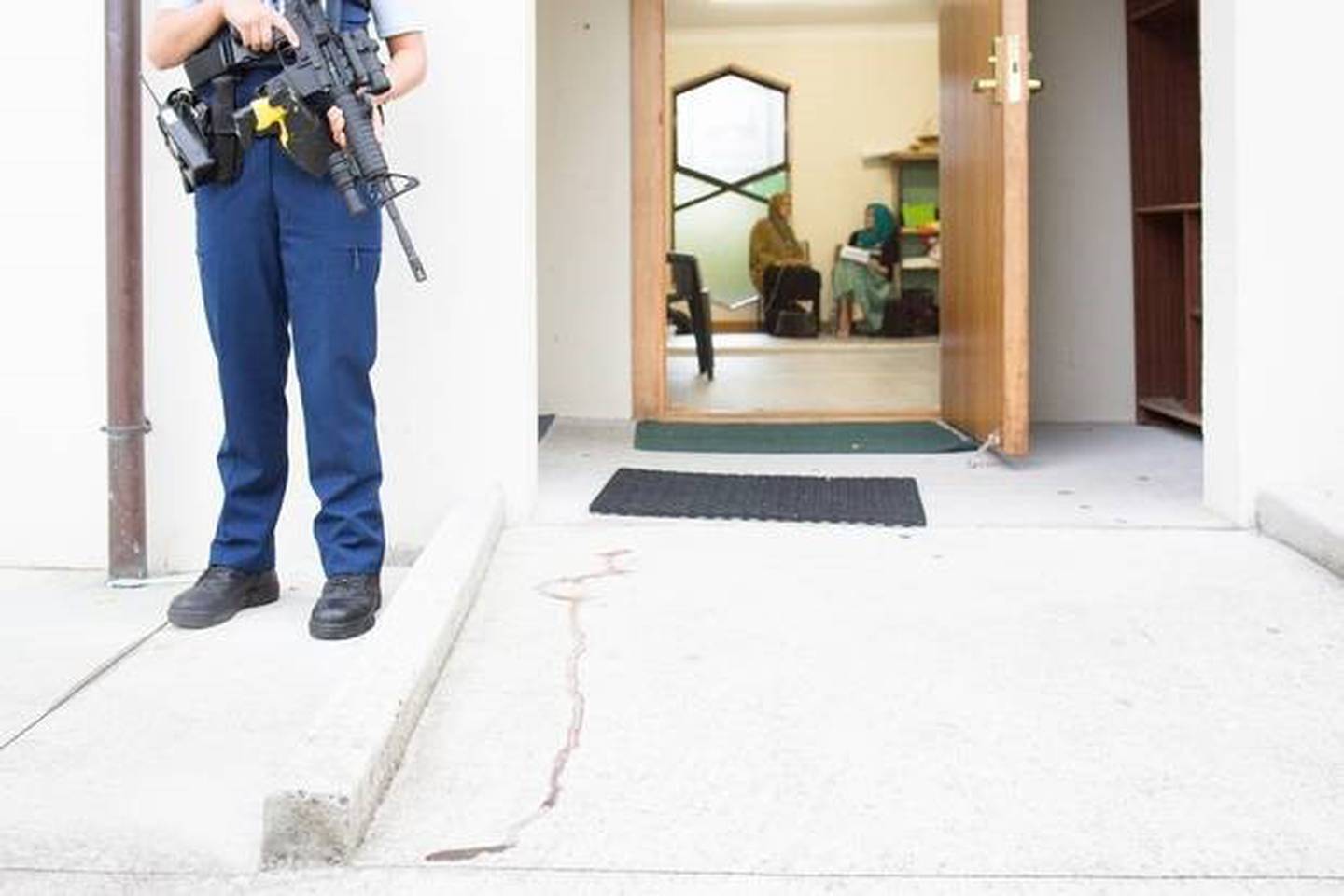The Australian terrorist behind the Christchurch Mosque attacks says a full coronial inquiry into the 51 murders should correct "factual inaccuracies" in the Royal Commission of Inquiry report into the atrocities.
The convicted mass killer, who is serving life behind bars without parole, claims the Department of Corrections withheld the Royal Commission's 792-page report, released in December 2020, until just last week.
His lawyer Ron Mansfield QC today claimed that a judicial review could now be sought by his client to correct perceived "errors of fact".
Mansfield submitted to Coroner Brigitte Windley, who is presiding over a scope hearing to determine what a coronial inquiry into the March 15 attacks would look at, that she should "put a red line" through the report and conduct her own hearing.
"There is no need for you to feel that the Royal Commission's recommendations bind you in any way – they don't. There is no need for your honour to feel deferential to the royal commendation, you shouldn't your duty is quite separate and distinct," Mansfield said.

Coroner Brigitte Windley during the scope hearing. Photo / Supplied
The coronial inquiry will aim to establish cause and circumstances of death, where possible, and consider any recommendations or comments that could help reduce the chances of further deaths in similar circumstances.
There has been no decision on whether a full inquest hearing will be held.
So far this week questions have included whether the terrorist was acting as a lone wolf or whether he had help, and how he was able to get a firearms licence.
There have also been calls to scrutinise allegations of "aggression" by first police officers on the bloody and chaotic Al Noor Mosque scene, including claims that officers pointed guns at victims, as well the role the internet has in radicalising New Zealanders.
Tarrant, who was jailed for life without parole in August 2020, has been dialling into the scope hearing from maximum-security at Auckland Prison but has not been on screen or heard.

Police arresting the man behind the March 15 terror attack. Photo / Supplied
His lawyer Mansfield said the terrorist who received a copy of the Royal Commission's final report on February 15 this year, despite it dealing with him "in much detail and can be seen to be critical of his conduct for obvious reasons". It was denied to him by the Department of Corrections, the lawyer said, along with other material he should have received as part of the scope hearing.
He also said that Tarrant was only interviewed once by the Royal Commission, between 9am and 3pm, with a one-hour lunch break.
The Royal Commission report refers to restrictions regarding access to him "even though he was compliant based on the availability of suitable housing", Mansfield said.
Tarrant would now be willing to correspond with the commission through his lawyer to try and get "errors of fact" corrected.
"He proposes to judicially review the royal commission in relation to the way in which its conducted its work, in particular some of its factual findings and recommendations," Mansfield said.
"Because quite frankly, in my submission, it's hard to see how he wasn't a core participant … and I acknowledge that others including the families should also have been identified as core participants and been involved in a much greater degree in the Royal Commission's work."
Coroner Windley should not feel bound by the commission's report, Mansfield added, saying it was quite open to her to make "quite separate" factual determinations and go further than the royal commission if she received even more "reliable and credible evidence".
"Seeking to look at the evidence in relation to events that occurred prior to 15 March, 2019 or looking at the events on 15 March, 2019, all parties should have the opportunity to ensure that the facts are right," Mansfield said.

The Christchurch Muslim community still have unanswered questions nearly three years after the March 15, 2019, terror attacks. Photo / NZME
Earlier today, the New Zealand Human Rights Commission (HRC) submitted that the Royal Commission's report should not mean it's the end of the matter.
HRC chief legal adviser John Hancock said there has been a "plethora of questions left unanswered" which a coronial hearing could give public scrutiny to.
Hancock said the Royal Commission's findings that a huge amount of resources had been directed at the Muslim community before March 15, 2019, and not at far-right extremism, has created a significant question in the minds of affected whanau but also the wider community.
"That's a question of public interest," he said.
The scope hearing is expected to conclude this afternoon.
Take your Radio, Podcasts and Music with you









